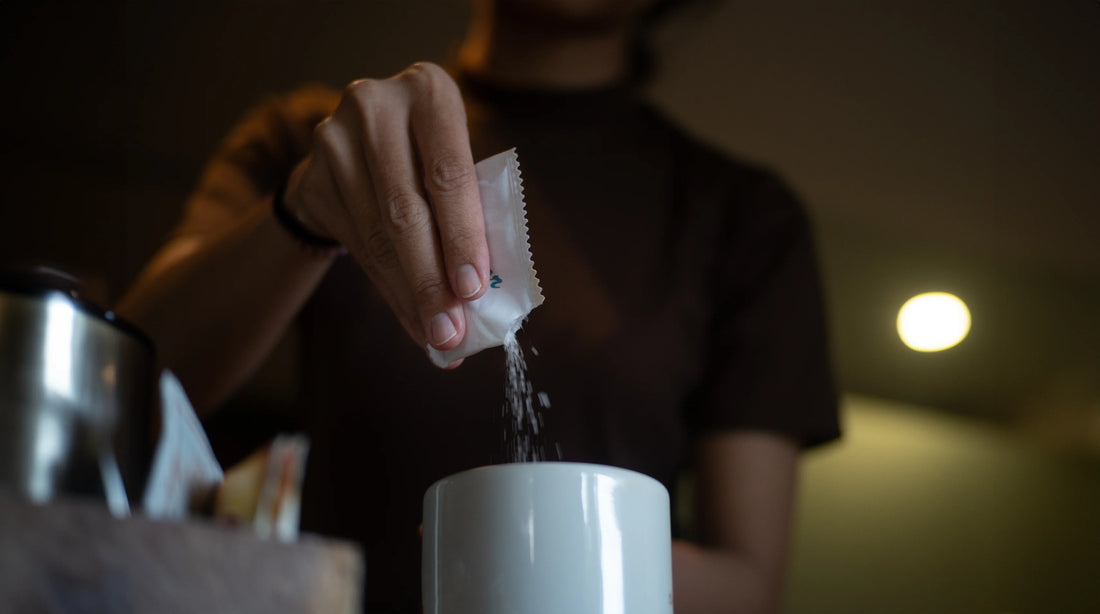
The Hidden Dangers of Artificial Sweeteners: Why You Should Avoid Aspartame and Sucralose
Share
Understanding Artificial Sweeteners
Artificial sweeteners, like aspartame and sucralose, are marketed as healthier alternatives to sugar, promising fewer calories and less impact on blood sugar levels. However, recent research raises significant concerns about their safety and potential negative effects on health. It’s time to look beyond the marketing and consider the real risks associated with these sugar substitutes.
Aspartame: A Closer Look at the Risks
Aspartame is widely used in diet sodas, sugar-free gum, and many other low-calorie products. Despite its popularity, there are compelling reasons to avoid this artificial sweetener.
Health Risks:
- Neurological Effects: Some studies have linked aspartame to headaches, dizziness, and mood changes. A study published in “Environmental Health” found that excessive aspartame consumption could affect brain function and behavior.
- Cancer Concerns: While regulatory agencies maintain aspartame is safe, some independent studies have raised red flags. Research by the Ramazzini Institute suggested a potential link between aspartame and an increased risk of leukemia and lymphoma in rodents.
- Metabolic Issues: Aspartame may contribute to metabolic disorders. Research has shown that it can interfere with appetite regulation, leading to overeating and weight gain.
Controversies:
Aspartame’s approval process has been mired in controversy. In the 1980s, former U.S. Secretary of Defense Donald Rumsfeld, then CEO of G.D. Searle (the company that developed aspartame), allegedly used his political influence to fast-track FDA approval despite safety concerns. This has fueled ongoing debates about aspartame’s safety and the integrity of the approval process.
Sucralose: The Unseen Dangers
Sucralose, another common artificial sweetener, is found in diet drinks, sugar-free candies, and many baked goods. Despite its widespread use, there are serious health concerns associated with sucralose.
Health Risks:
- Gut Health: Sucralose can negatively impact gut bacteria. A 2018 study in “Frontiers in Physiology” showed that sucralose consumption reduced beneficial gut bacteria in mice, which could have significant implications for human gut health and overall well-being.
- Cancer Risk: A study published in the “International Journal of Occupational and Environmental Health” in 2016 suggested that sucralose might increase the risk of leukemia in mice. Although regulatory agencies have not changed their stance, these findings cannot be ignored.
- Metabolic Disruption: Research indicates that sucralose might interfere with insulin sensitivity, potentially increasing the risk of type 2 diabetes. A study in “Diabetes Care” found that sucralose affected glucose and insulin levels in obese individuals who did not regularly consume artificial sweeteners.
The Bottom Line: Why You Should Avoid Aspartame and Sucralose
While artificial sweeteners like aspartame and sucralose are touted as safe sugar alternatives, the emerging research suggests otherwise. The potential risks to neurological health, metabolic function, and gut health are significant. Moreover, the controversies surrounding their approval processes cast doubt on the assurances of their safety.
For those seeking a healthier lifestyle, it is advisable to avoid these artificial sweeteners. Instead, consider natural alternatives such as stevia or monk fruit, which have fewer documented risks and can provide the sweetness you crave without compromising your health.
References:
- Environmental Health. (2017). Neurological Effects of Aspartame Consumption. Retrieved from Environmental Health.
- Ramazzini Institute. (2007). Aspartame Induces Cancer in Rodents. Retrieved from Ramazzini Institute.
- Frontiers in Physiology. (2018). Effects of Sucralose on the Gut Microbiome. Retrieved from Frontiers.
- International Journal of Occupational and Environmental Health. (2016). Long-term Consumption of Sucralose and Cancer Risk. Retrieved from IJOEH.
- Diabetes Care. (2013). Sucralose Affects Glycemic and Hormonal Responses. Retrieved from Diabetes Care.
Stay informed, prioritize your health, and opt for natural sweeteners to maintain a balanced and healthy lifestyle.